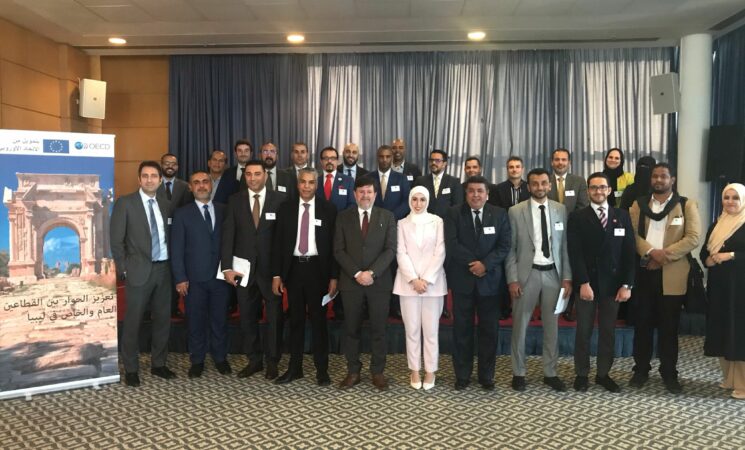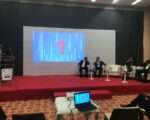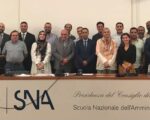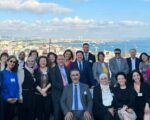The OECD organised a kick-off event for the EU-OECD Project on Promoting Public-Private Dialogue in Libya, bringing together public sector officials and private sector representatives to discuss the methodology for public-private dialogues and select the final economic sectors that will be targeted for the sectoral approach of the project. The representatives will act as the Project's PPD Champions, who will later receive focused capacity building training to enable them to successfully launch and facilitate a PPD platform.
The event was held in March 2022 in Tunis, beginning with an examination of the methodological approach to the PPD activities in Libya, including the scope and governance structure of the PPD Platform, the sub-national and sectorial dialogues, the expected outcomes of the PPD, and the continuation and sustainability of the platform.
The meetings also covered the OECD's initial assessment of Libya's economic sectors: Agribusiness and fisheries, transport and logistics, construction, ICT, private banking, and tourism. The session also included a wider discussion on the viability of these sectors and whether to include any other sectors for the pilot phase of this project. The overall consensus from the meeting was to focus on five key sectors: agribusiness, transport, construction, banking and ICT.
The final component of the meeting was to outline the next steps for the project which will include a targeted training programme in the months of June-July to equip the PPD Champions with public advocacy and managerial skills, how to facilitate public private dialogue and specific sectoral training to highlight international best practices in these sectors.
Promoting Public-Private Dialogue in Libya is an EU-OECD Programme that supports and encourages an active economic and social dialogue between Libya’s public and private actors. Through public-private dialogue, the Programme will contribute to the adoption of the necessary economic transformation policies that can lead to post-conflict recovery and the diversification of Libya’s economy. The Programme will work towards its objectives by:
► Creating a platform which mobilises public-private discussions through physical encounters;
► Providing the government, private and social actors with the tools and expertise necessary to engage in a structured dialogue;
► Contributing to developing a new economic vision for the country, delivering analytical inputs and well-structured and specific policy reform plans.
Find out more about the Project here: https://oe.cd/libya





Leave a Reply
You must be logged in to post a comment.